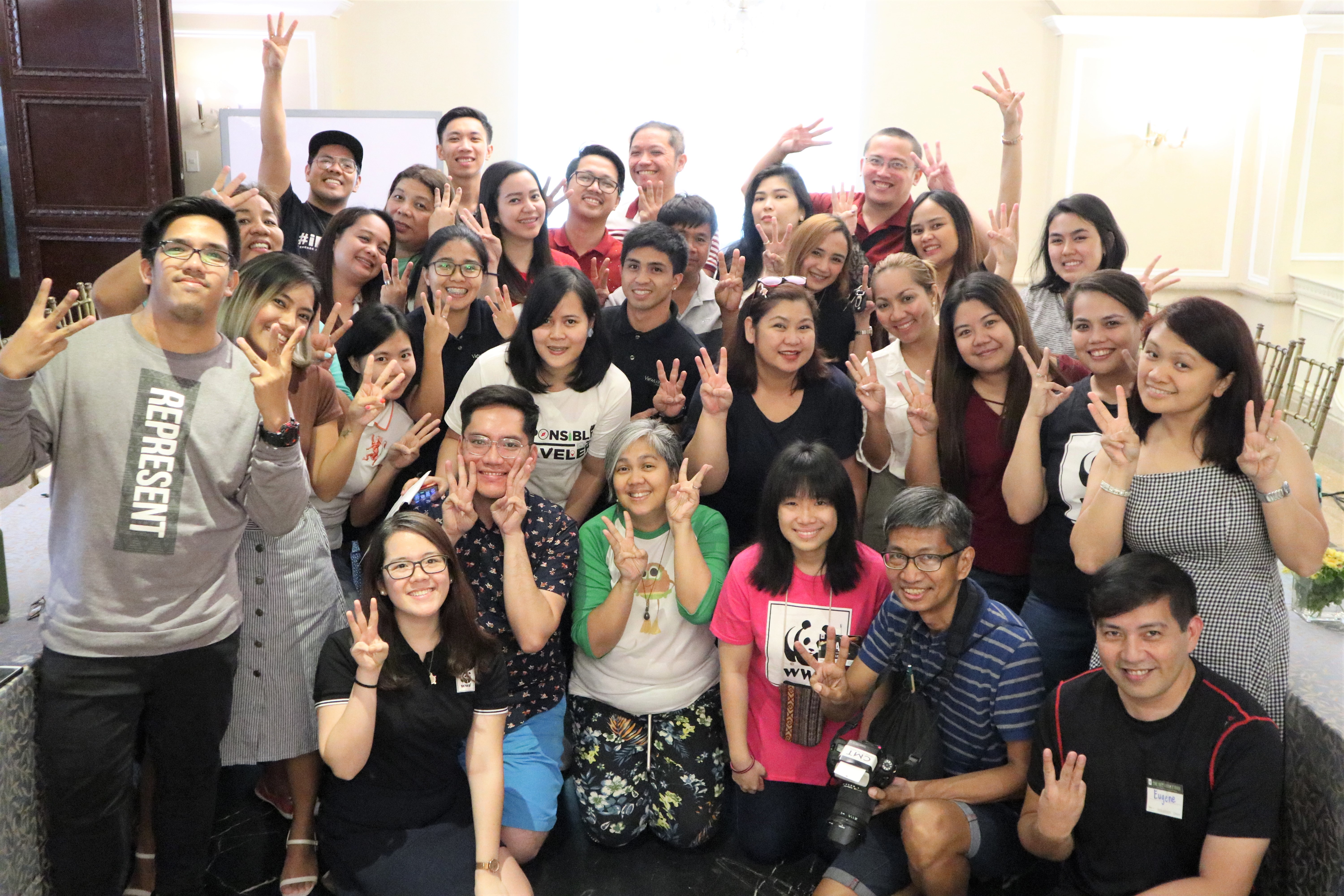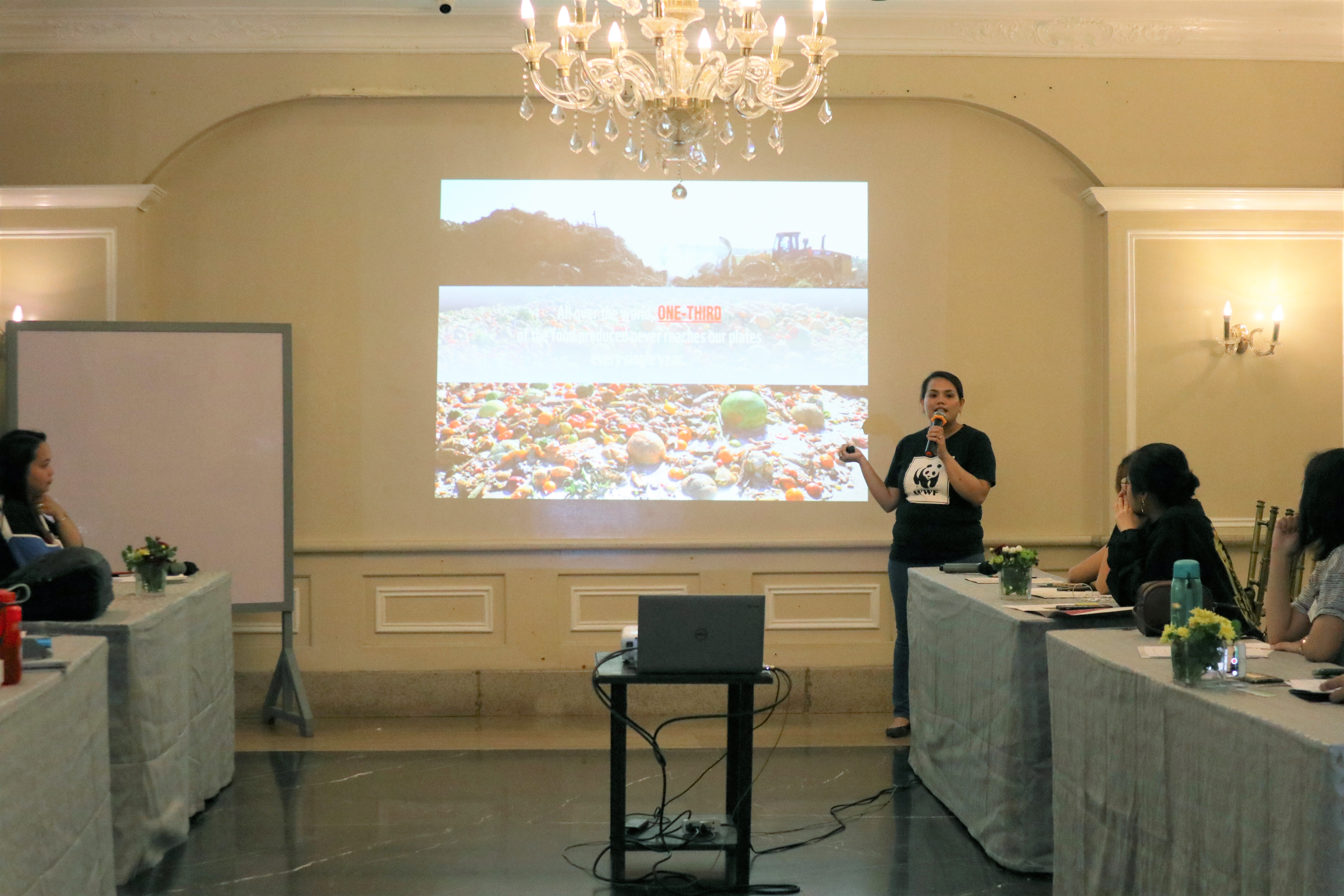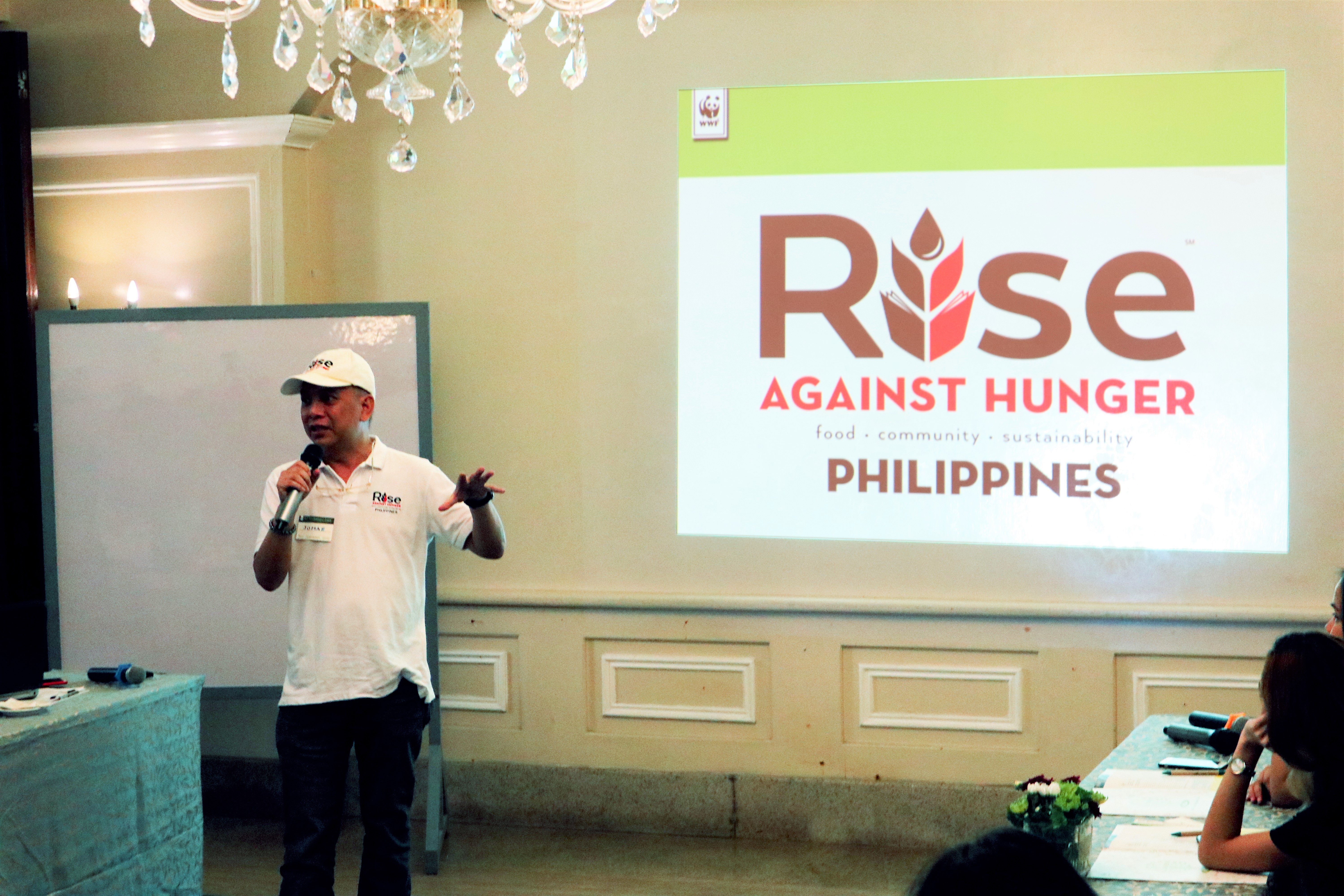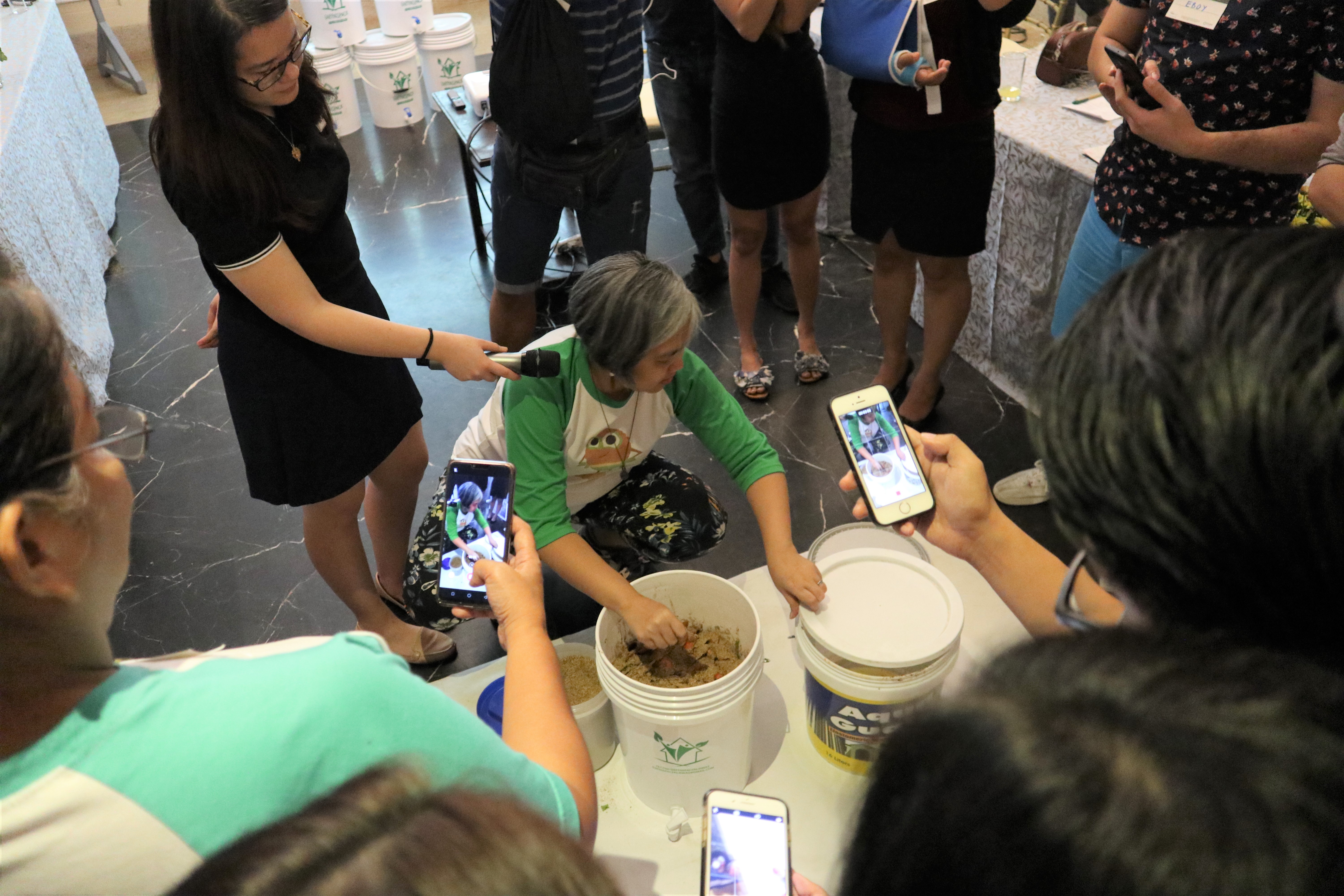Food waste is never okay! WWF-Philippines conducts the Savour Planet 2019: No Place for Waste in Tagaytay City
May 2019
Together with View Park Hotel, Siglo Modern Filipino, Rise Against Hunger Philippines, and Earthventure/Greenspace, World Wide Fund for Nature (WWF) Philippines brought their media trip series to bloggers and foodies from Metro Manila and Tagaytay City last May 25, 2019.
“We’ve experienced how big of a buzzword sustainability has become in the past decades, but despite the word’s popularity, not a lot people still understand what it means, how important it is, how individuals can participate to support the movement, and how it spans and affects the different industries of society, including food.”
According to the Food and Agriculture Organization (FAO) of the United Nations, roughly one third of the food produced in the world for human consumption every year – approximately 1.3 billion tons – gets lost or wasted. Food loss and waste amount to a major squandering of resources, which includes land, water, energy, labor, and capital, all of which produce their own amounts of greenhouse gas emissions which then contribute to global warming and climate change. Does not sound very sustainable, does it?
“Unsustainable food consumption and production, which leads to the generation of food waste, is one of the major threats to our environment today. 70% of terrestrial biodiversity loss and 69% of global freshwater use are attributed to unsustainable food systems. Nowadays, we are not experiencing climate change, but a climate crisis. As diners, we can help curb the situation by changing the way we see, eat, and think about food.”
With that invitation, Melody Melo-Rijk, WWF’s Project Manager for Sustainable Consumption and Production in the Philippines, welcomed members of the media and the local foodie scene from Metro Manila and Tagaytay City to the second leg of Savour Planet: No Place for Waste.

Participants from the second leg of Savour Planet: No Place for Waste consisted of partners from the media and local foodie scene who are enthusiastic to spread the word about sustainable dining through different online platforms.
Recognizing the importance of putting a spotlight on the food waste crisis we are currently experiencing, WWF-Philippines, through its pioneer project on sustainable consumption and production, The Sustainable Diner: A Key Ingredient for Sustainable Tourism, has conducted the second run of its flagship media workshop series at View Park Hotel Tagaytay. The event was catered by Siglo Modern Filipino – one of the project’s partner restaurants in Tagaytay City who has been very active in educating their diners on the importance of using locally-sourced produce in promoting authentic Filipino cuisine. The Savour Planet workshop series aims to empower and educate Filipino diners, partners from the media, the academe, as well as fellow non-government organizations and food security projects on the importance of sustainable food systems and sustainable dining. The objective of this year’s theme is to equip Filipino diners with knowledge and practical approaches on how they can prevent, manage, and divert the food waste they have at home.

Melody Melo-Rijk, WWF’s Project Manager for Sustainable Consumption and Production in the Philippines, presenting alarming food waste statistics to the participants.
“Sustainability, especially in food production and consumption, has two elements: resources and time. Resources refer to the current pool that we are using, which includes energy and water. As for time, we’re really talking about how we can ensure that these resources can flourish until the next generation”,’ says Melo-Rijk, who opened the workshop by giving a brief introduction on The Sustainable Diner project and how sustainable food systems greatly contribute to the project’s thrust on sustainable dining. “If we want the food service industry to become sustainable, then food waste is never okay. It is never okay for the hungry and food insecure Filipinos, for businesses and their costs, and for local farmers and fisherfolk, oftentimes included in the poorest of the poor in our country.”
Filipino diners often associate food waste with leftovers, those that we either choose to take out or leave whenever we dine out in restaurants. However, Melo-Rijk also stressed the importance of looking at how we source and cook food, and how we look at the ingredients used in preparing some of our favorite dishes. “In restaurant kitchens, we also lose food in the delivery and preparation process. In our homes, we contribute to food loss whenever we choose to ignore what’s referred to as ugly produce in markets and groceries”,’ says Melo-Rijk. The term “ugly produce” refers to produce that are misshapen, undersized, discolored, bruised, or those with unusual spots or marks. These kinds of produce are usually ignored by the market, who would opt to go for “perfect-looking” items believing that they would taste better and would contain more nutrients than their bruised and battered counterparts. “Aesthetics alone do not affect food safety. If we really want to prevent food waste in our homes, then we need to give these ugly produce a chance.”
Jomar Fleras, the Executive Director of Rise Against Hunger Philippines, then talked about the hunger situation in the country, emphasizing the role food banks play in ensuring that no Filipino is left hungry and that no excess food will go to landfills as waste. “Hunger is a serious problem here in the Philippines. Did you know that in 2017, we ranked 29th in the world with a Global Hunger Index of 20.0?” says Fleras. “In fact, only 1 out of 3 Filipino households consider themselves as food secure. And yet, according to the Food and Nutrition Research Institute of the DOST, each Filipino wastes an average of 3.29 kg of rice per year. How is it that we cannot bring that food to our hungry countrymen before they even end up as waste in landfills? This is why intermediaries, such as The Good Food Grocer, are very important to feed a hungry society.”

Jomar Fleras, Executive Director of Rise Against Hunger Philippines, talks about the importance of food banks in alleviating hunger and in preventing excess food from going to landfills as waste.
Mylene Reyes, the Quality Assurance Manager of View Park Hotel Tagaytay and Siglo Modern Filipino, shared the different ways by which their hotel and restaurant contribute to the promotion of sustainable dining and lessening of food waste in Tagaytay City. “Here at Siglo, we support local farmers and our advocacy is to promote heirloom ingredients that we don’t usually use nowadays. We want to revive Filipino traditions and the value of Filipino food, and to do that, we actually created our own farm here in the hotel called Siglokalikasan”,’ says Reyes. “We get most of our ingredients from there and then all the excess, we turn into new products we sell at our Siglo Sari-Sari Store. The farm has been especially helpful when it comes to diverting the food waste we produce in the hotel and restaurant, because we are able to turn them into compost which provides nutrition to our soil and our plants.”
The micro-talks ended with a presentation and workshop on bokashi composting, led by Rina Papio, Founder of Earthventure/Greenspace. She introduced compost as a regenerative substance that serves as probiotic to our land, and that solving the food waste problem also involves regenerating our soil. “Nowadays we always talk about the farm to table concept when it comes to restaurants and dining. That is a good thing because it means we are connecting our gastronomic experiences to the ingredients used in the dishes that we enjoy and that helps us appreciate local sourcing”,’ says Papio. “Why stop there? What about connecting with our food waste? We know and appreciate where food comes from but do we know and care about where they go? Why can’t it be farm to table to compost to farm?”. Through her workshop, Papio was able to demonstrate how easy it is for Filipino diners to conduct bokashi composting in their own homes, whether they lived in houses or condominiums. The Sustainable Diner team actually surprised the participants with a giveaway of five (5) bokashi composting kits, courtesy of Earthventure/Greenspace. The lucky winners will use these kits to jump start their composting journey and will spread the word about their experiences through articles and blog posts. To end the activity, Jem Ong, a private citizen who communicated with The Sustainable Diner team about her own food waste management initiatives, delivered a short but inspiring talk on how regular Filipinos can actually help divert food waste from landfills by doing their own composting at home.

Using the power of social media, the participants started helping out in spreading the word about composting by taking photos and videos of the bokashi composting demonstration.
Our project partners from the media, the academe, and civil society organizations form a bulk of the Filipino dining public and this is why the project sees them and their influence as agents of change. By educating them on how they can help reduce food waste in their own ways and homes, and by introducing them to different food waste reduction and diversion techniques and platforms, WWF-Philippines hopes that our combined efforts can positively influence how society deals with food waste. After all, with the hunger and climate crisis we are currently experiencing in the country and the world, there really is just no excuse nor place for food waste.
The Sustainable Diner project, under WWF-Philippines’ Sustainable Consumption and Production, is part of the International Climate Initiative (IKI). The Federal Ministry for the Environment, Nature Conservation, and Nuclear Safety (BMU) supports this initiative on the basis of a decision adopted by the German Bundestag.
For more information, please contact:
Ms. Melody Melo-Rijk
Project Manager, Sustainable Consumption and Production (SCP)
Ms. Lorayne Roque
Sustainable Dining Specialist
